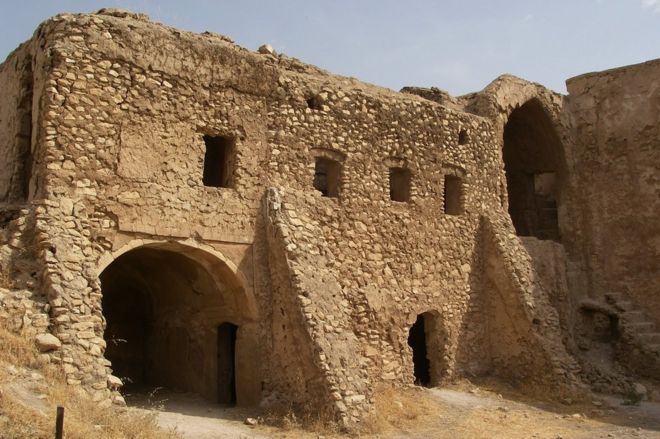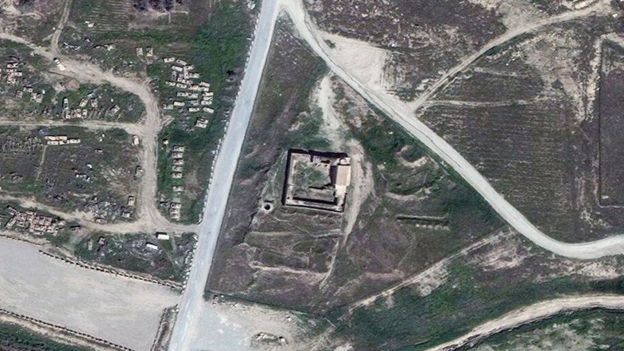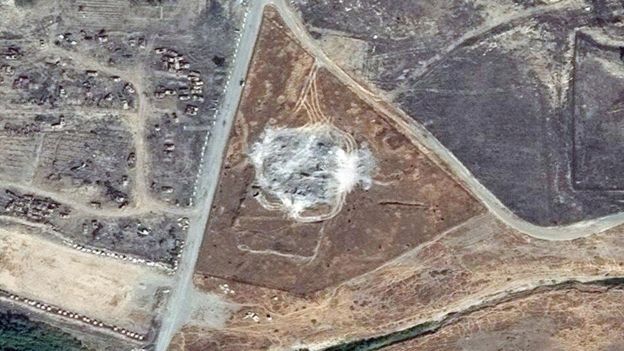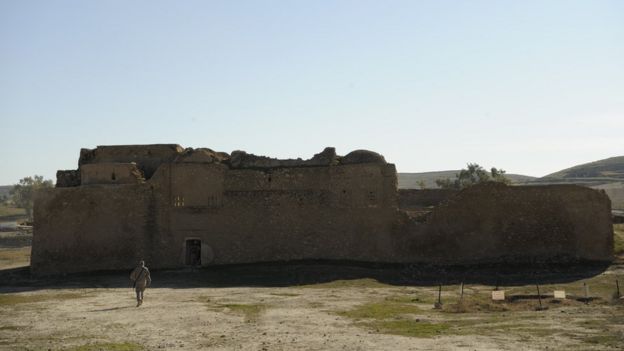
Satellite images confirm that the oldest Christian monastery in Iraq has been destroyed by the jihadist group Islamic State (IS).
St Elijah's stood on a hill near the northern city of Mosul for 1,400 years.
But analysts said the images, obtained by the Associated Press, suggested it had been demolished in late 2014, soon after IS seized the city.
A Catholic priest from Mosul warned that its Christian history was "being barbarically levelled".
"We see it as an attempt to expel us from Iraq, eliminating and finishing our existence in this land," said Father Paul Thabit Habib, who now lives in Kurdish-administered Irbil.
IS has targeted Christians in Iraq and neighbouring Syria, seizing their property and forcing them to convert to Islam, pay a special tax or flee.
The group has also demolished a number of monasteries and churches, as well as renowned pre-Islamic sites including Nimrud, Hatra and Nineveh in Iraq and Palmyra in Syria.
'Important place'
St Elijah's Monastery, or Deir Mar Elia, was believed to have been constructed by Assyrian monks in the late 6th Century. It was later claimed by a Chaldean Catholic order.
In 1743, its monks were given an ultimatum by Persian forces to convert to Islam. They refused and as many as 150 were massacred.
 DigitalGlobe via AP
DigitalGlobe via AP DigitalGlobe via AP
DigitalGlobe via AP
Fr Thabit told AP that the monastery "became a spiritual place for Christians to visit and to have religious ceremonies, and to ask forgiveness from the saint who founded this monastery".
"The monastery attracted all the people from Mosul - Christians and Muslims. All the poets, historians and travellers wrote about this monastery," he added. "It became a very important place for the history of the Church in Iraq."
In the 1970s, the monastery became a base for the Iraqi Republican Guard, and in 2003 one of its walls was damaged by the impact of a T-72 tank turret that was hit by a missile during the US-led invasion of Iraq.
 AP
AP
The US Army used the monastery as a base itself, before a chaplain recognised its importance and a commander ordered it to be cleared.
Stephen Wood of Allsource Analysis told AP that the satellite images published on Wednesday suggested the monastery was destroyed between August and September 2014, two to three months after IS captured Mosul and ordered Christians who had not already fled to leave.
The images showed "that the stone walls have been literally pulverized", Mr Wood said. "Bulldozers, heavy equipment, sledgehammers, possibly explosives turned those stone walls into this field of grey-white dust. They destroyed it completely."
A security source in Nineveh province separately confirmed to the BBC on Wednesday that IS militants had blown up the monastery, completely destroying it.
No comments:
Post a Comment